From Minneapolis to Germany to Kenya to Japan, people are crying out “I can’t breathe.” Since the murder of George Floyd on May 25, 2020 people all across the globe have taken to the streets in protest to support Black Lives Matter (BLM). Although the Black liberation struggle has been ongoing for centuries, activists seem to think that this moment may be different.
In an interview with Channel 4 news, Angela Davis, leading civil rights and political activist since the 1960s, underscored: “This moment holds possibilities for change we have never before experienced.” There has been a lot of debate about what makes this moment different and if George Floyd’s death will be the one that changes the world as we know it. While no one can be sure what the future holds, we can point to ways in which this moment is indeed unique.
In the two weeks following the death of George Floyd, support for Black Lives Matter in the US increased by nearly as much as it had over the previous two years (Cohn and Quealy 2020). According to Pew Research Center, as of June 2020, the majority of Americans (67%) support the Black Lives Matter movement. And more Americans than ever are vocally showing their support on social media, through mutual aid and community care, and especially on the ground at protests.
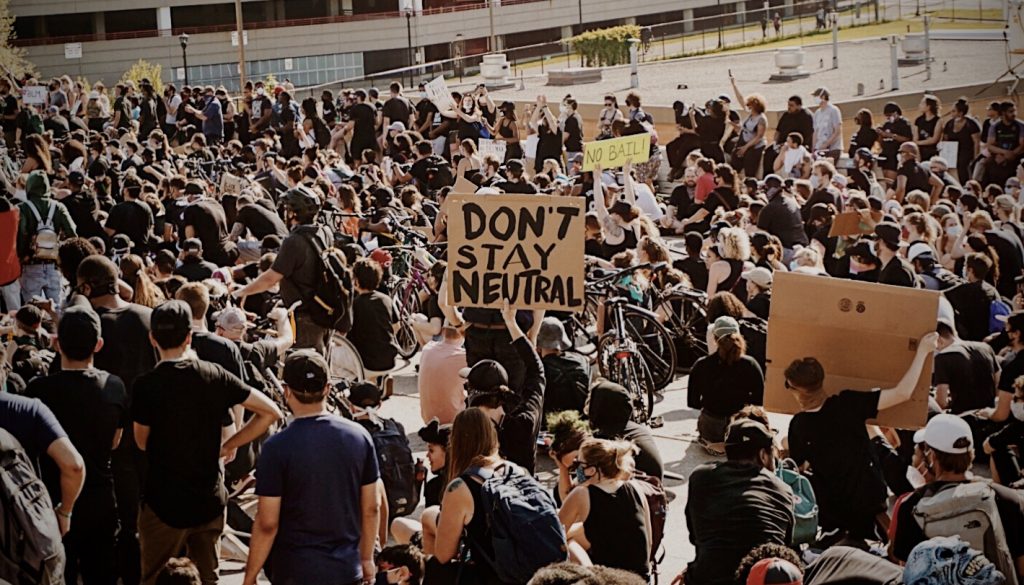
We have seen bikers block off roads to stop traffic for marches, medics protecting and serving their community, protestors helping each other to safety amidst police firing bullets and teargas into crowds. In Minneapolis, we have seen “community” at its best –as more than just a feeling, but an action. We have seen people standing, sitting, kneeling, and marching in unity, demanding justice because without justice, we will never have peace.
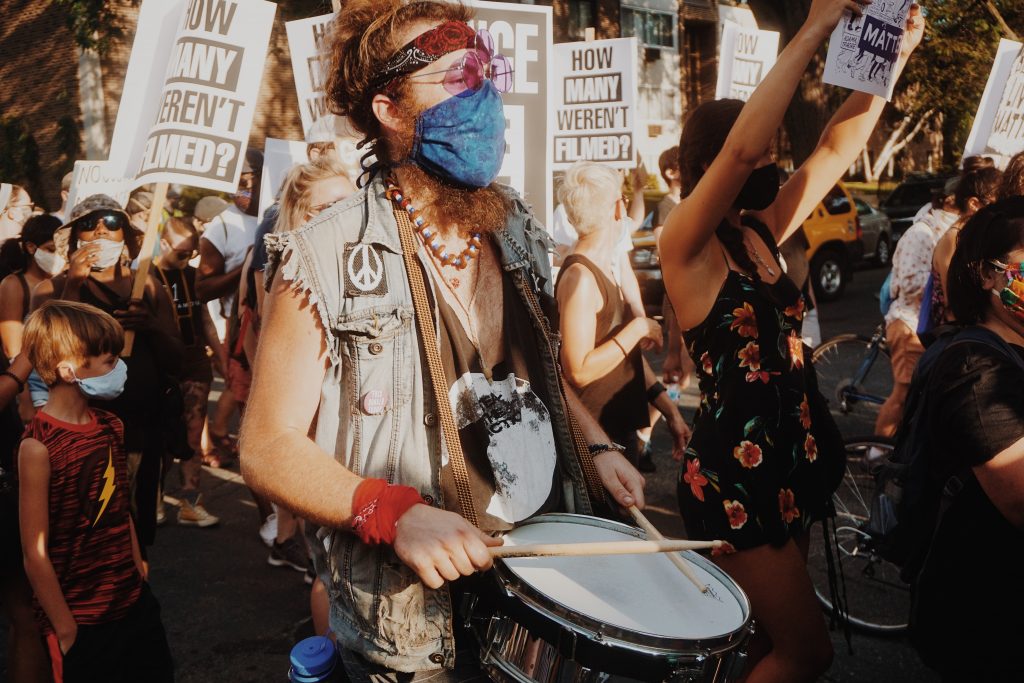
In Minneapolis, currently ground zero for the movement, people continue to show up in extraordinary numbers. People across the nation have been using their unique talents and skills to show up in countless ways for BLM. People of all races, religions, gender identities, and ages have united on their streets to stand together as one to demand justice for the Black community. The sheer magnitude combined with the diversity of the current movement makes this moment unique.
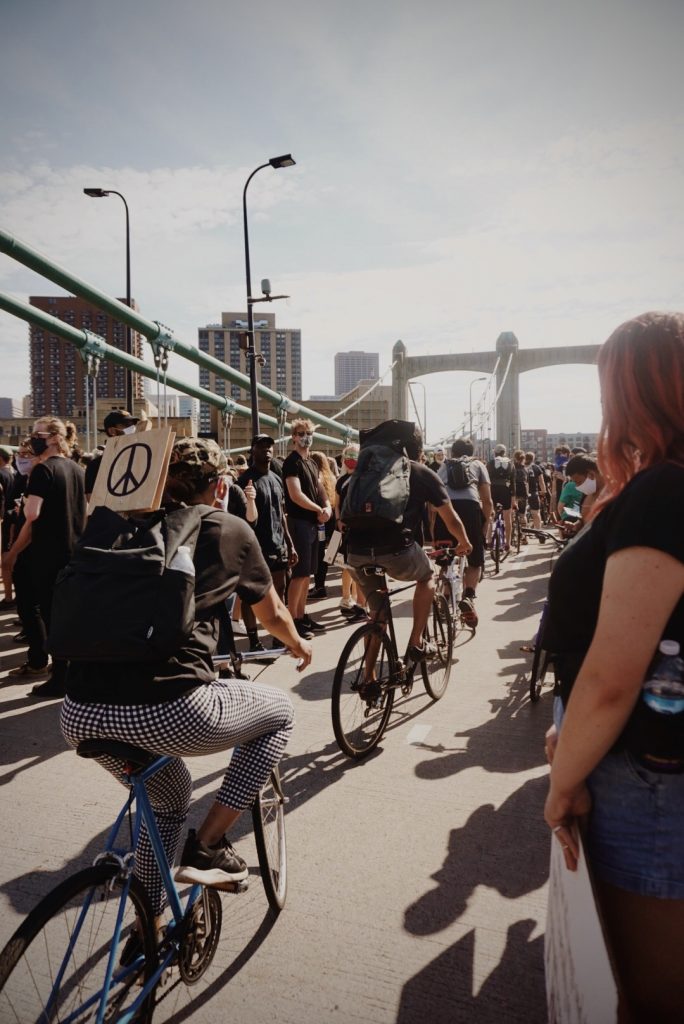
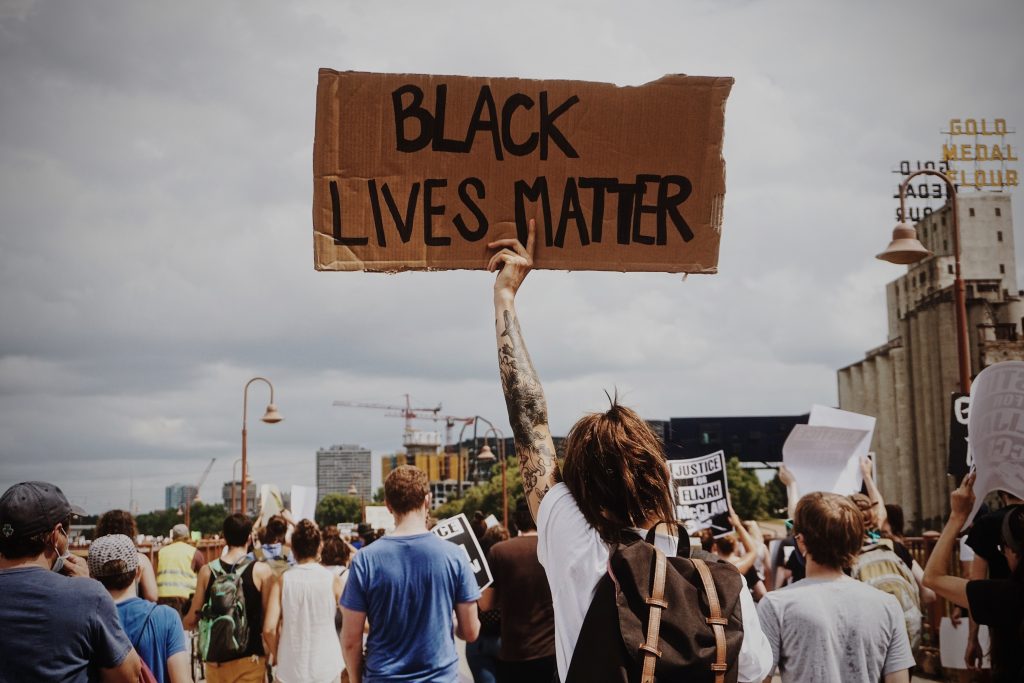
Beyond Minneapolis, in Hawaii for example, local surfers have held paddle out ceremonies for BLM. In Aurora, Colorado, locals have been holding violin vigils for Elijah McClain, and in Philadelphia, skaters have organized skateboard marches for BLM.
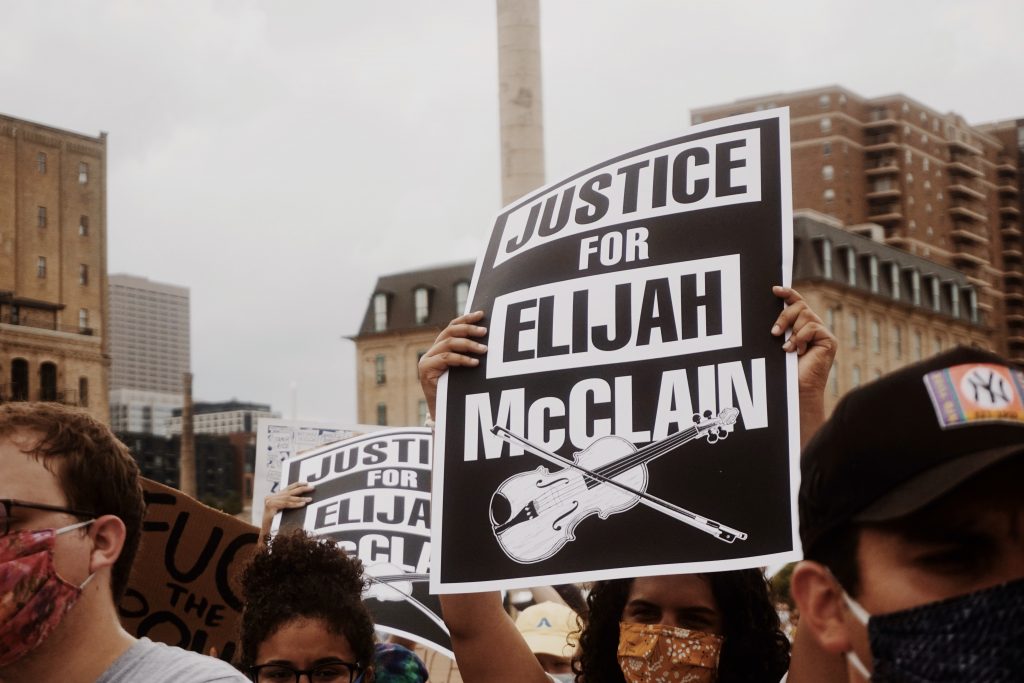
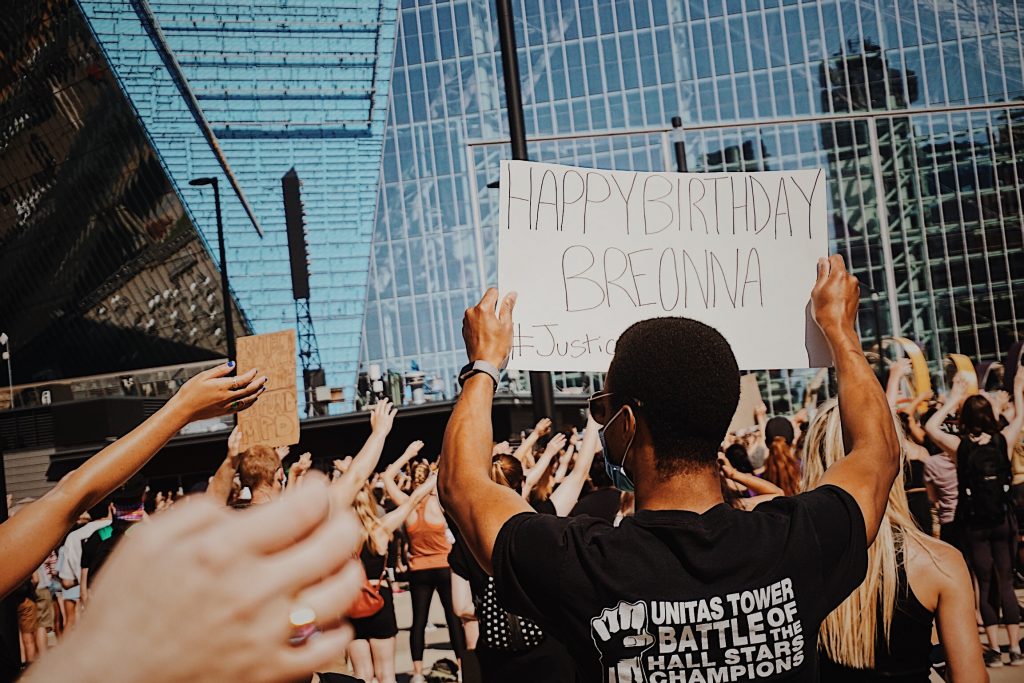
Black Lives Matter may be the largest movement in U.S. history. Across the globe, people are standing in solidarity with BLM in the U.S. and demanding that their own nations also confront racism and white supremacy. The rebellion was televised but the revolution will not be. The very things that will change people, will not be caught on film but caught on the ground, in our communities.
We must continue to demand justice for people, regardless of where one comes from. This is only the beginning, so if you are skating, skate for the justice for Black lives. If you are shooting hoops, shoot hoops for the justice for Black lives. If you are dancing, dance for the justice for Black lives.
Come as you are. Come in your own way. Come out for Layleen Polanco and Tony McDade. Come out for Sandra Bland and Breonna Taylor. Come out for Philando Castille and George Floyd. Wherever you are and whatever you do, just make sure you keep coming.
We are Sociology graduate students based in Minneapolis, Minnesota and live about two miles from 38th and Chicago where George Floyd was murdered by Minneapolis Police.
Below, we showcase some of the ways in which the Minneapolis community has shown up for Black Lives Matter:
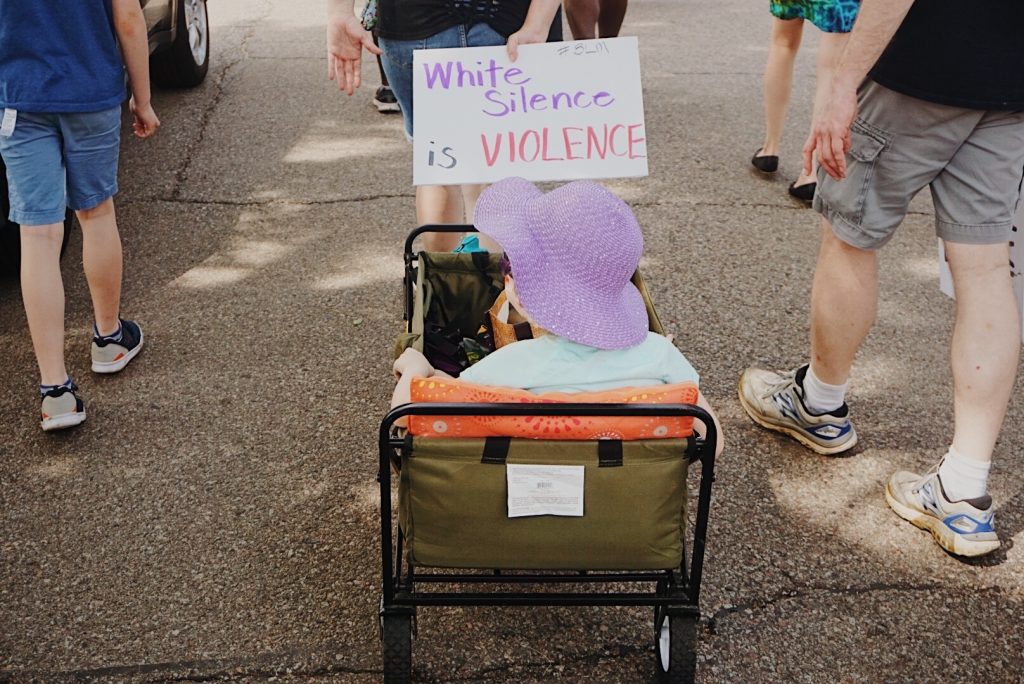
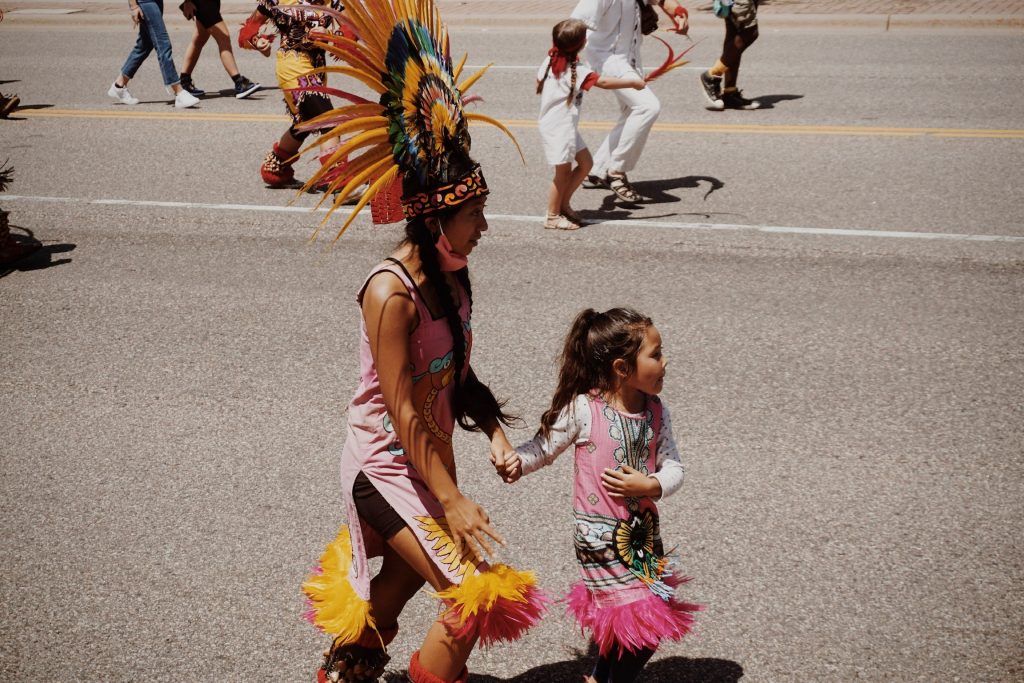
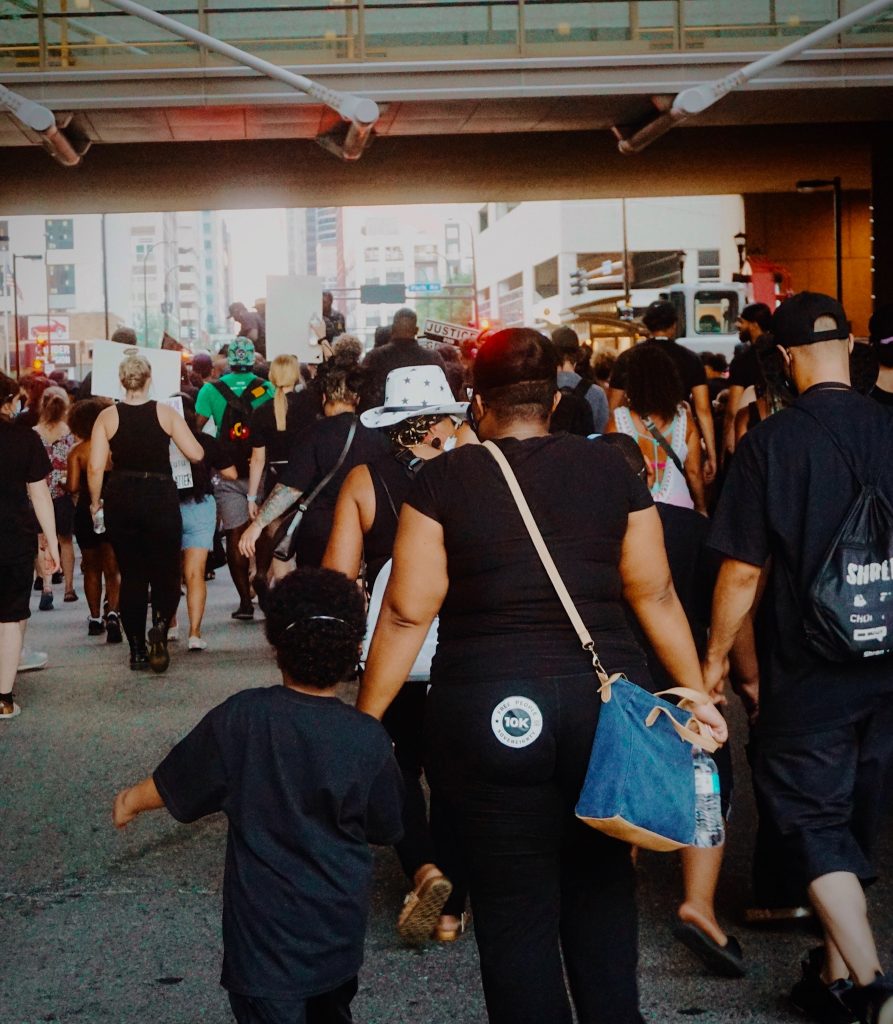
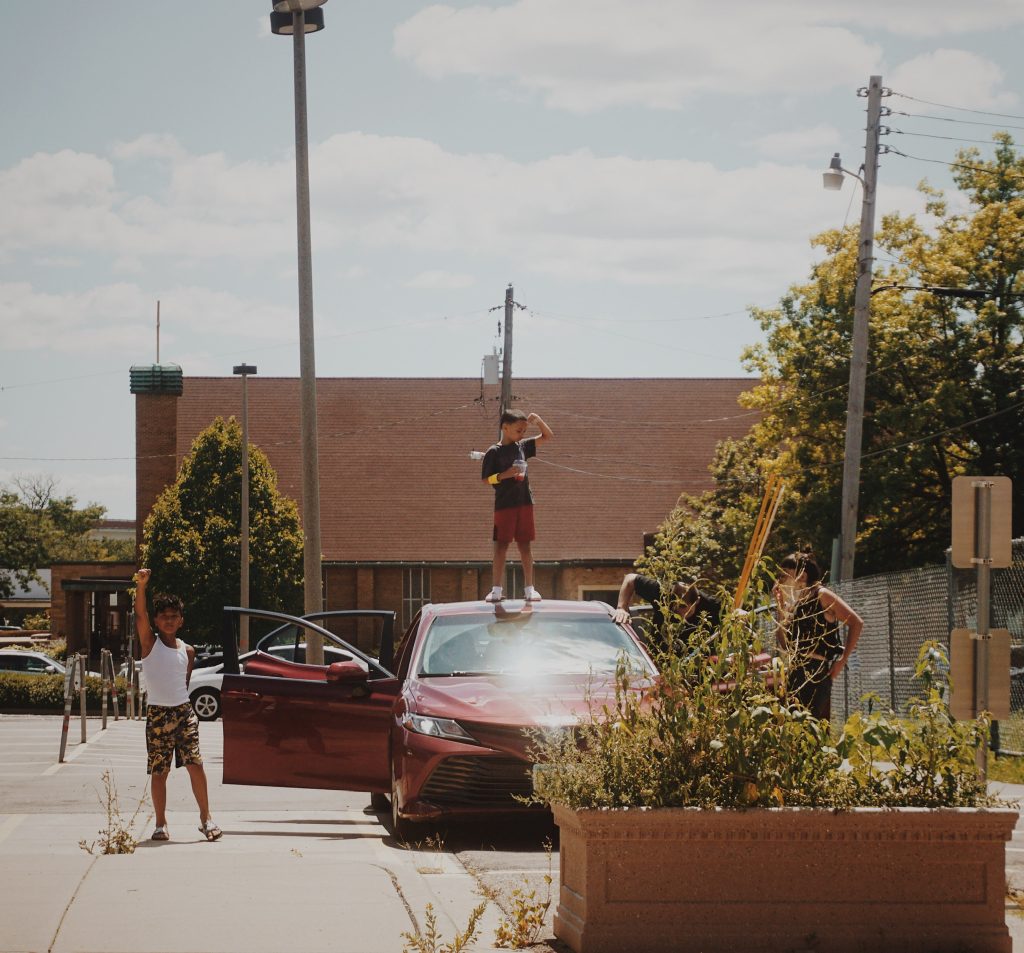
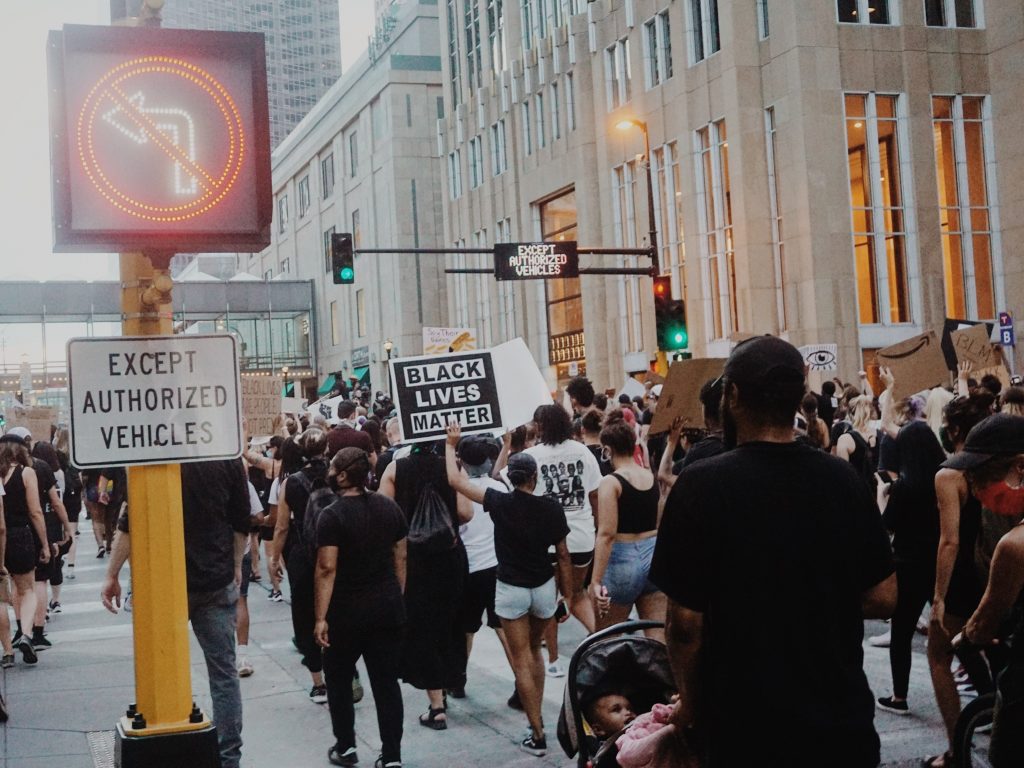
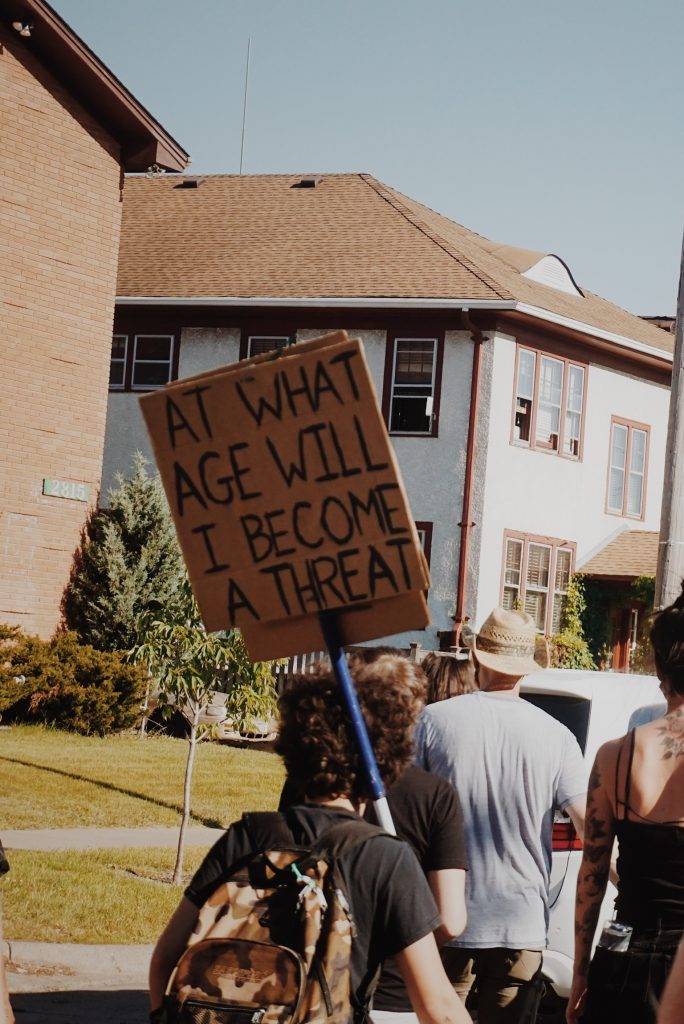
June/July 2020 What can you say…it’s Family: From infants to elders, toddlers to teens, protests in Minneapolis have been filled with families marching together. The youngest generations are already participating in the fight for racial justice. Their elders are showing these young justice warriors the way and they are wasting no time. This is their future.
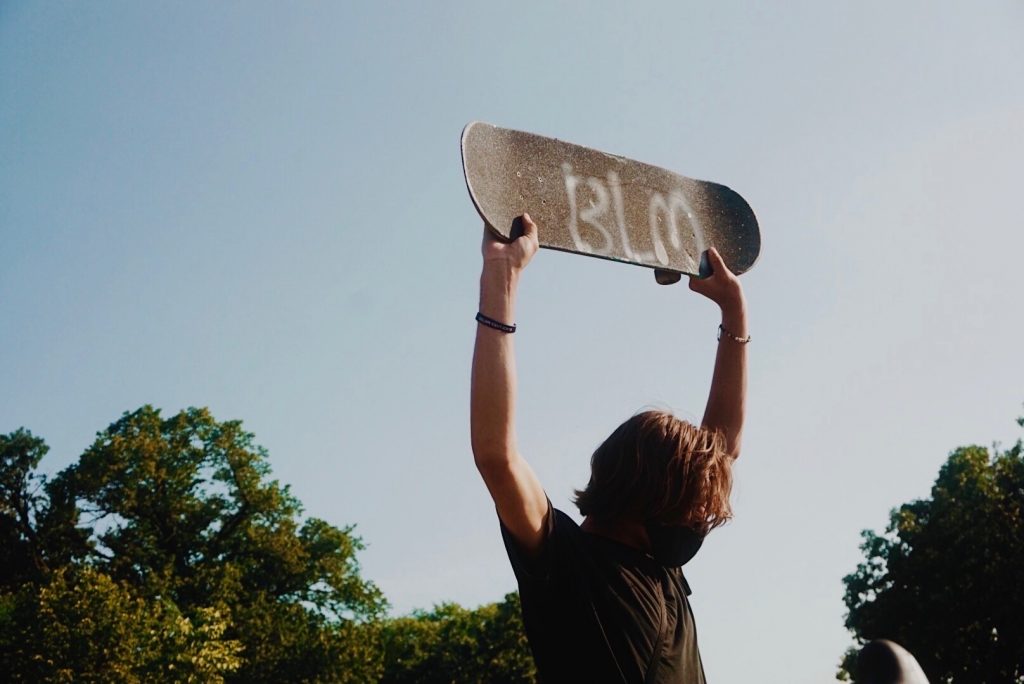
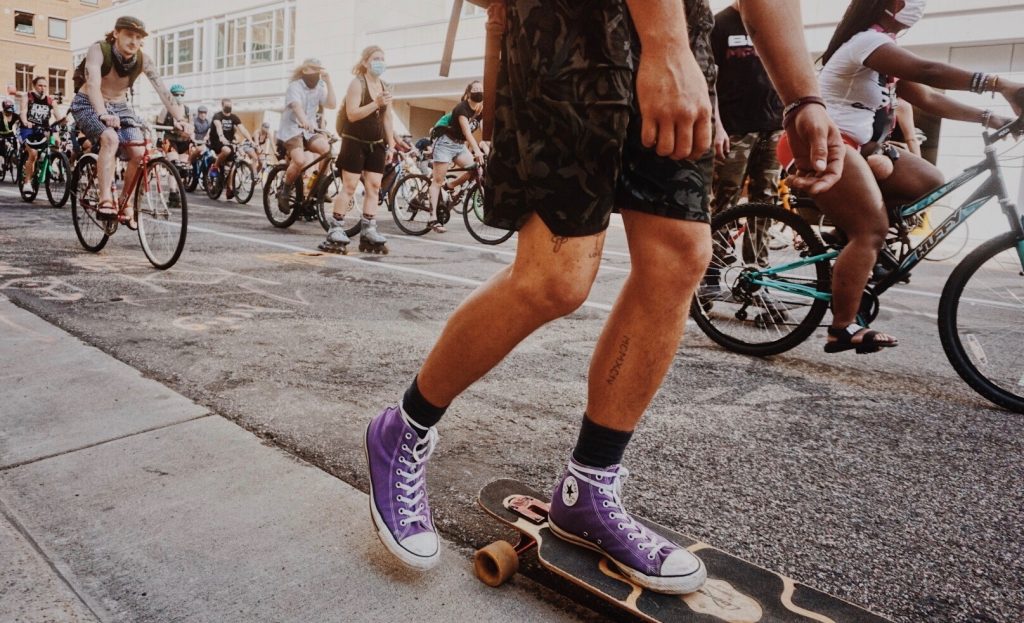
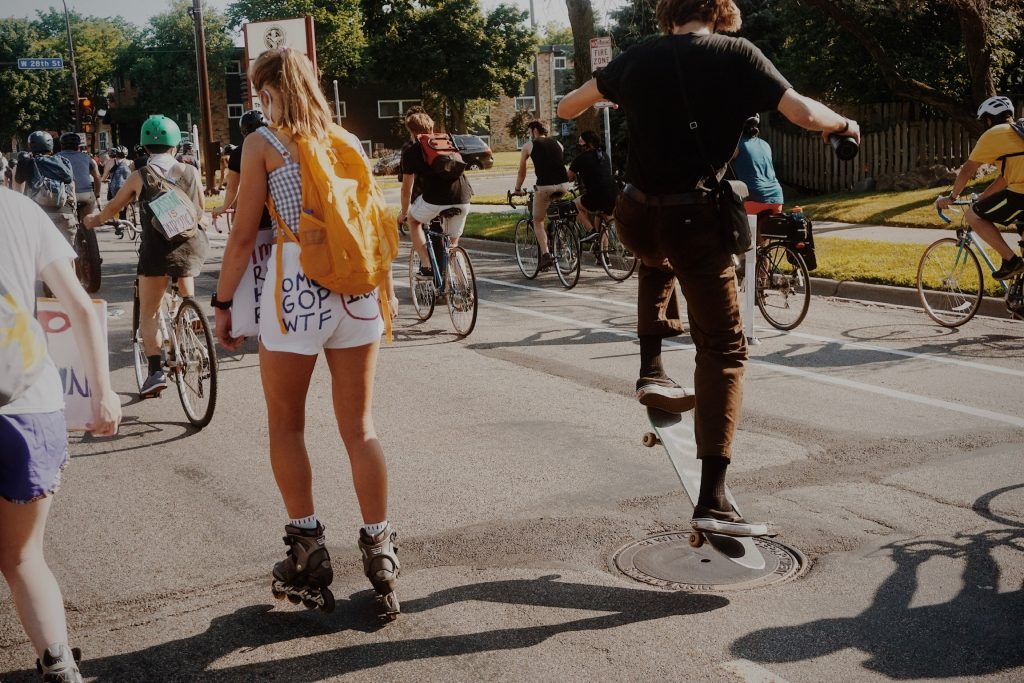
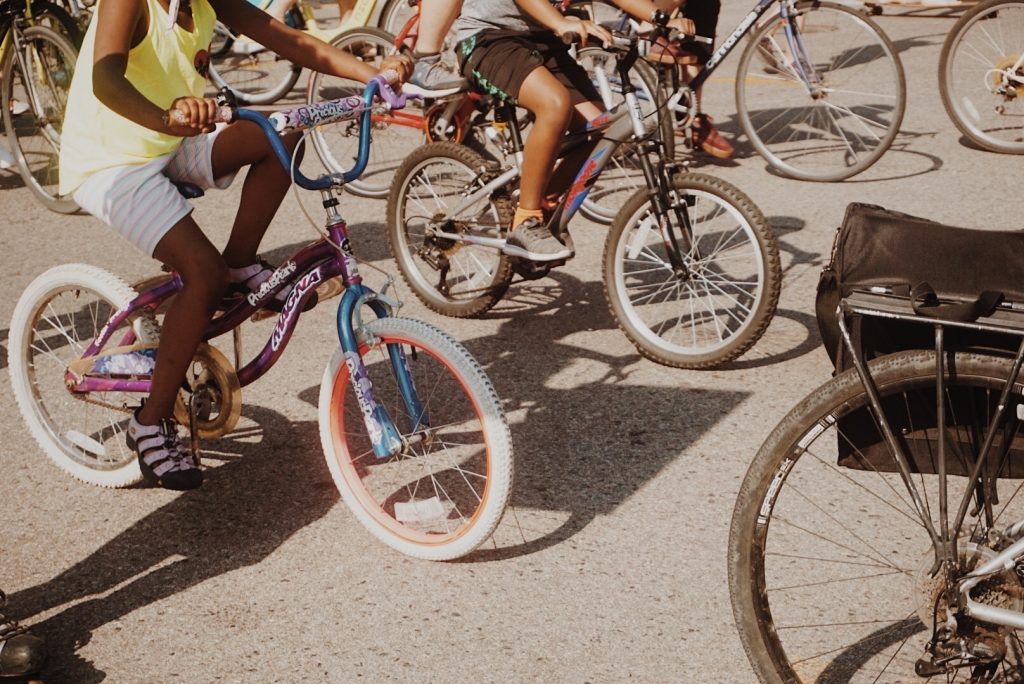
July 2020 Roll for Justice: On July 4th, rather than taking part in traditional 4th of July festivities, locals rolled through the streets of Minneapolis from City Hall to Bde Maka Ska in a unique protest organized by MIRAC dedicated to Black Lives Matter. For roughly five miles, community members and friends grabbed the nearest wheels they could find and rolled for change.
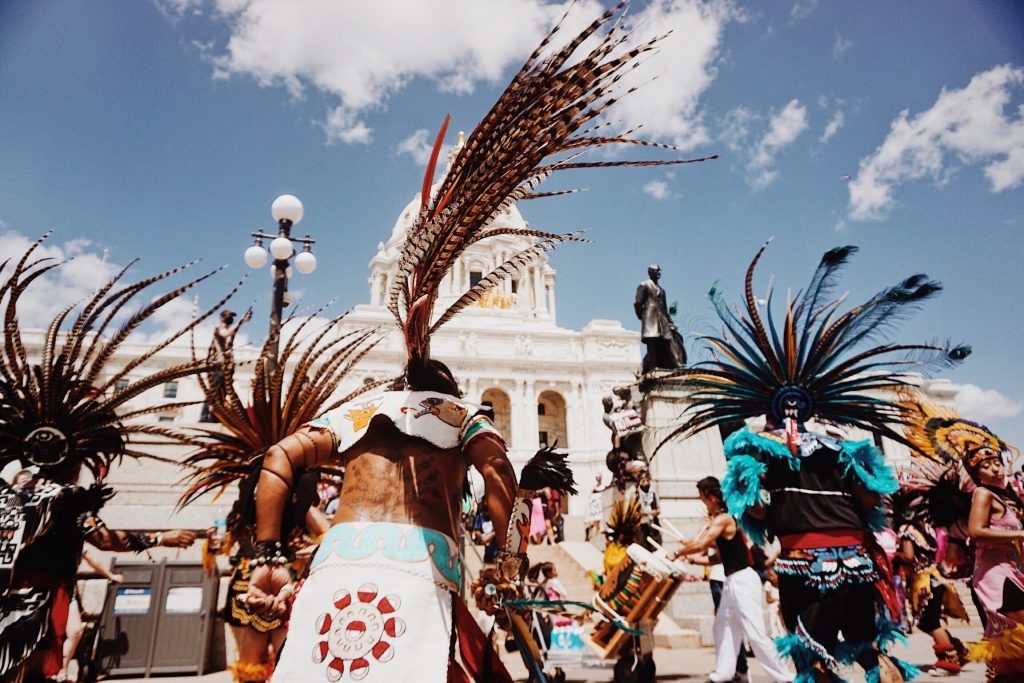
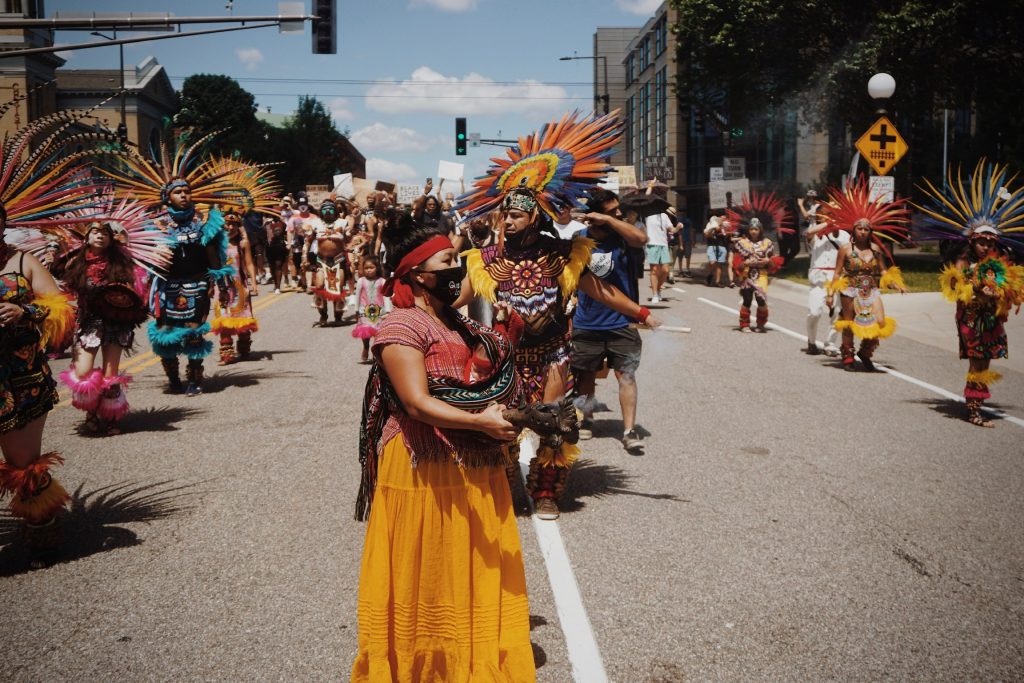
July 2020 Traditions and Solidarity: Kalpulli Yaocenoxtli, a traditional Mexica-Nahua (Aztec) cultural group, has spent much of the summer marching alongside thousands of protesters offering danzas and songs. During the National Mother’s March in St. Paul, families who have lost loved ones to police violence across the nation came together. Kalpulli Yaocenoxtli expressed solidarity, tradition, safe space, and unifying demands for justice.
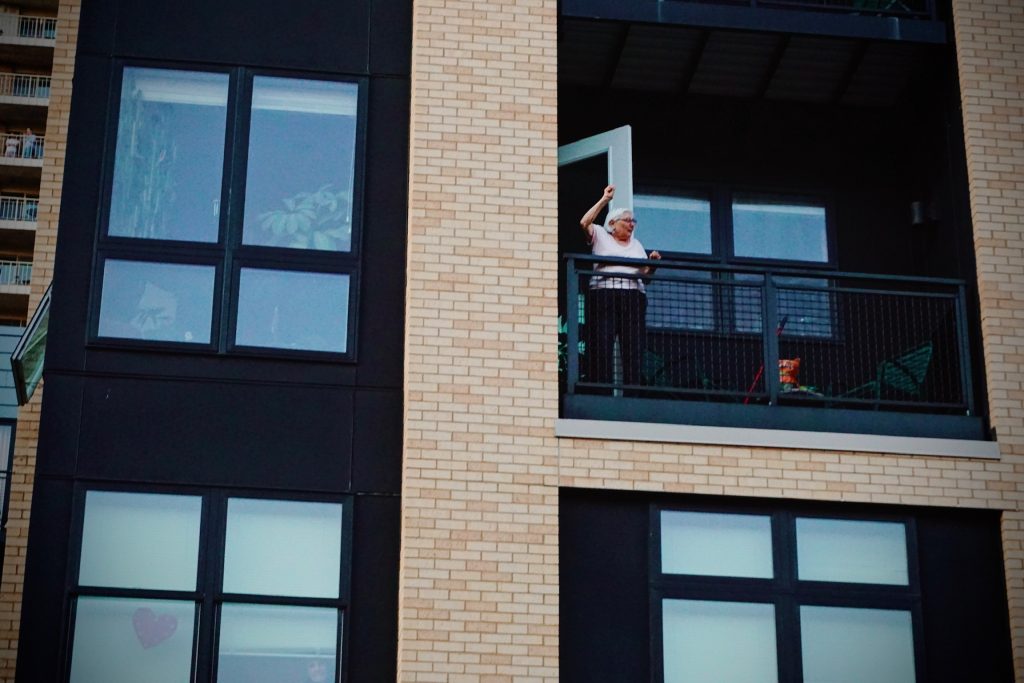
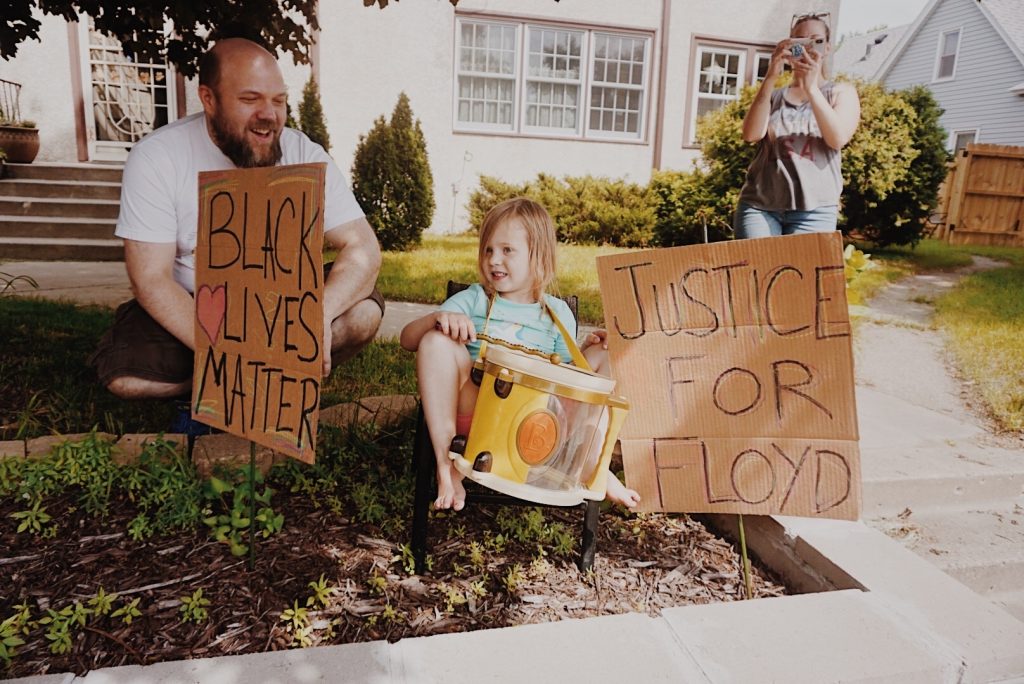
May 2020 Leave the Porch Light On: In On the Front Porch, Black Life in Full View, Audra D. S. Burch said it best: “a stage straddling the home and the street, a structural backdrop of meaningful life moments.” In Minneapolis, community elders frequently stand in solidarity cheering protesters on from their balconies, front doors, and backyards. In fact, during the height of the protests, community members called on their neighbors to leave their porch lights on to help protesters feel safe getting home throughout the night. Whether it was a lone voice showing support from their balcony, families with young children waving, playing music, and providing water to protestors, or simply leaving the porch light on to show that someone was home and that they cared, community members expressed solidarity in their own way.
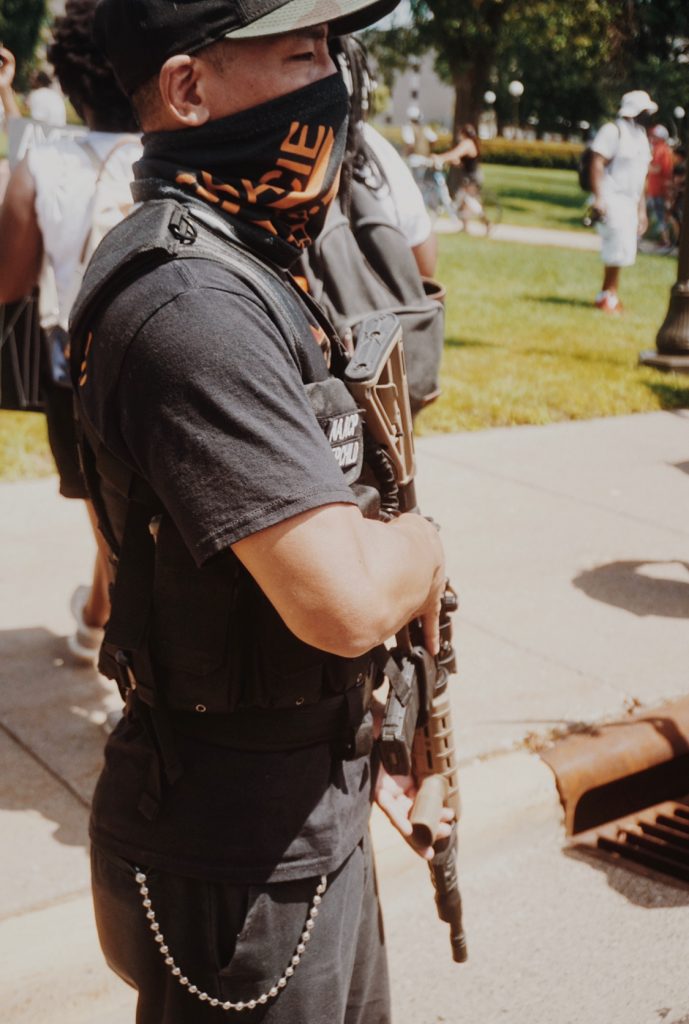
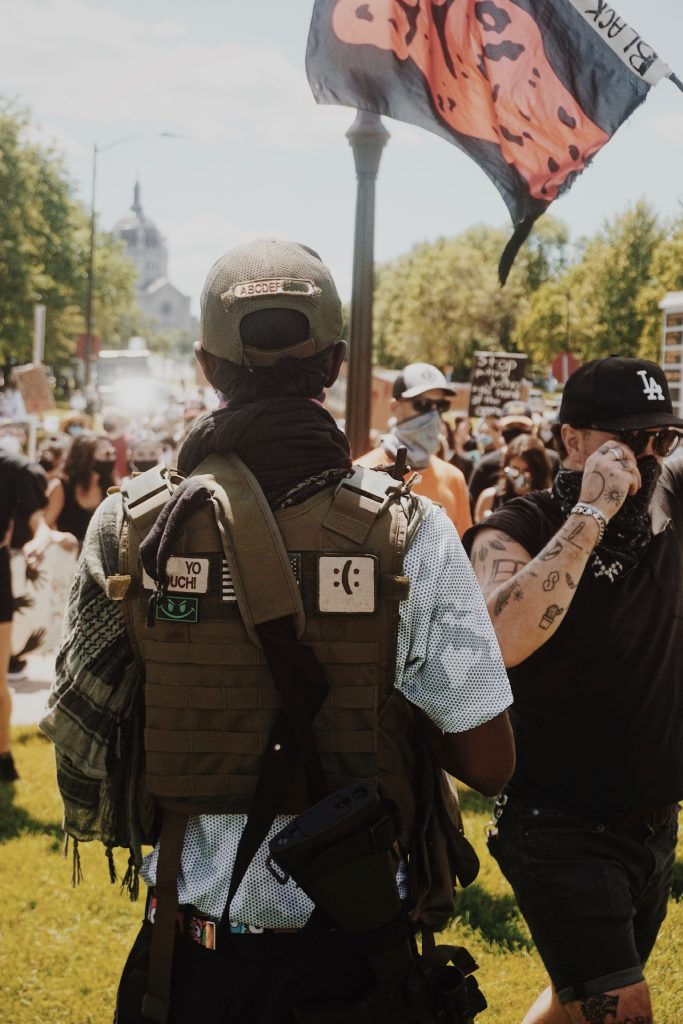
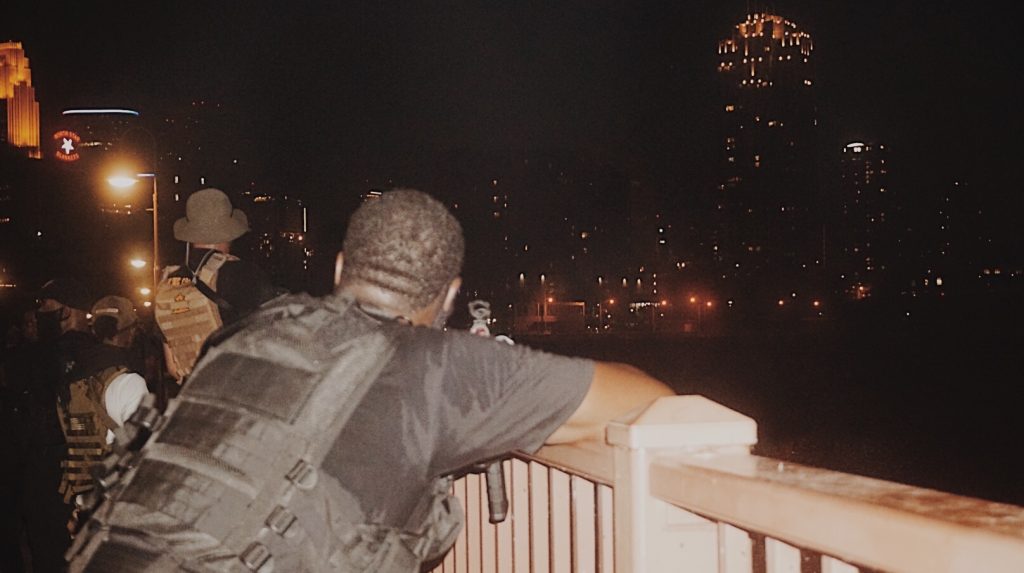
July 2020 Community Taking Care of Community: The Minnesota Freedom Fighters, an independent “elite security unit dedicated to protecting the citizens and businesses of the Twin Cities urban areas” has spent much of the summer working to ensure the safety of all protestors and their communities. Their objective “is not to be the police, but the bridge to link the police and the community together.”
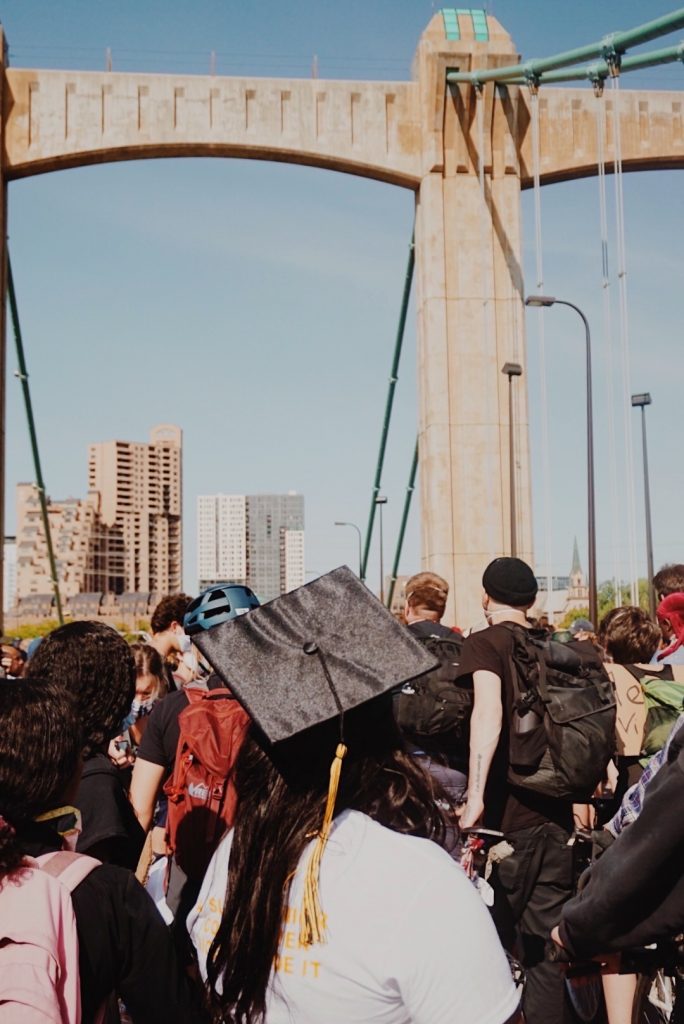
May 2020: A Toast to the Graduates: Here’s to those in the Class of 2020 who spent their graduation days on the streets fighting for a better future. Congratulations, keep on fighting!
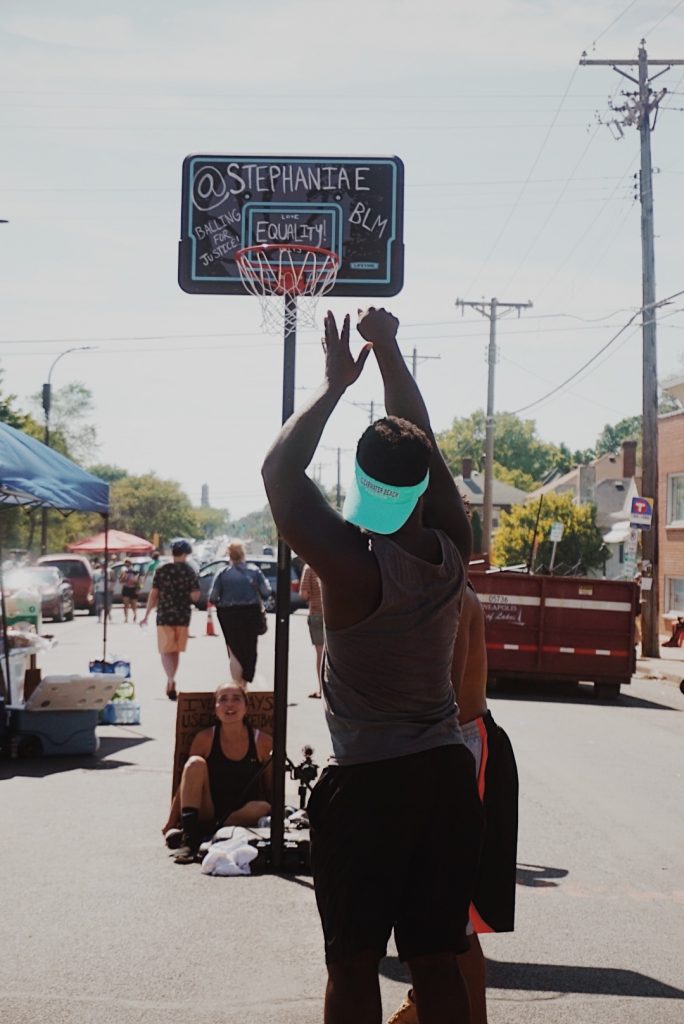

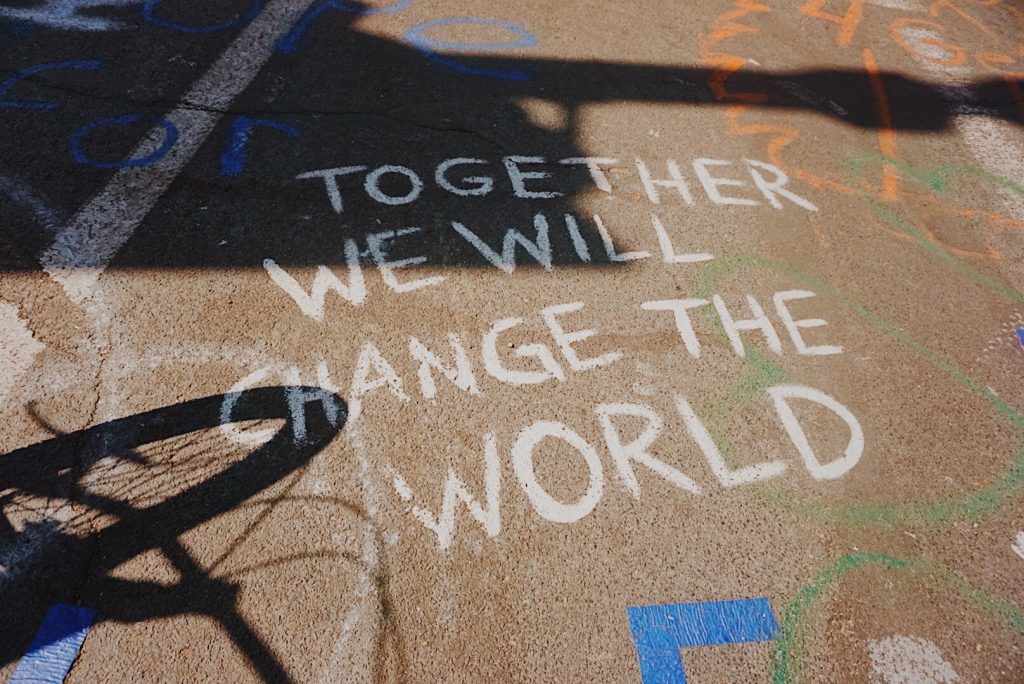
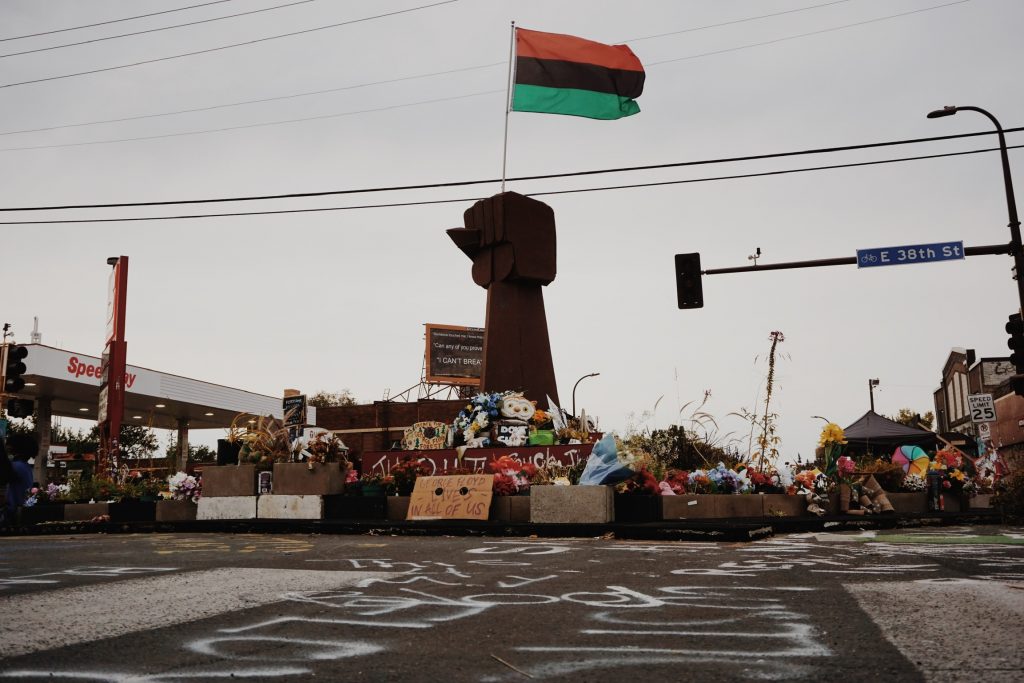
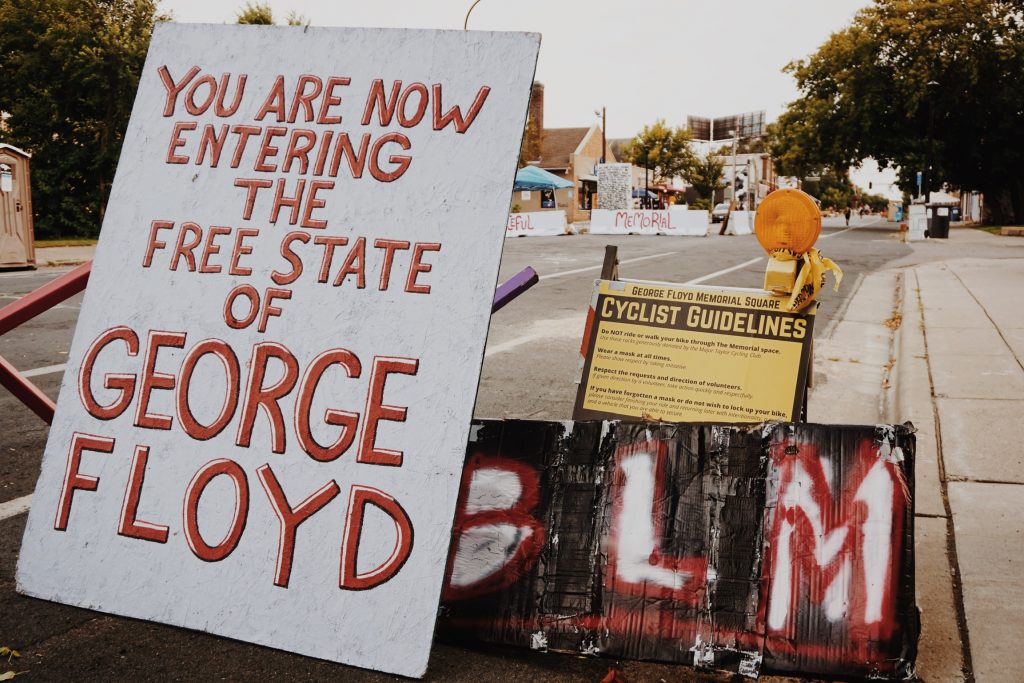
June 2020: Scenes from Floyd Town: On weekends, 38th and Chicago, now locally known as Floyd Town: The Free State of George Floyd, is regularly filled with community gatherings, artists, live performances, barbeques, donation drives, and pick-up basketball games. Floyd Town has become a sacred place for the Black community in Minneapolis. It has become a place of tragedy and resilience, a place of mourning and celebration, a place of reflection and organizing. May Floyd Town continue to bring power, joy, peace, resilience, and fight for those who continue to come as they are.
Anna DalCortivo is a PhD student in the Sociology Department at the University of Minnesota, Twin Cities. Her scholarly interests include crime, law, and punishment, social movements, and race. She is currently working on projects involving juvenile decarceration, the prison abolition movement, and All Square (a Minneapolis nonprofit social enterprise that invests in people with criminal records).
Mi’Chael N. Wright is a PhD student in the Department of Sociology at the University of Minnesota, Twin Cities. Her primary research focuses on sociology of media, sociology of mental health, collective memory and trauma, and identity. She is specifically interested in how digital communities, which can be simultaneously encouraging and hostile, constitute the identity development of Black and Brown adolescent girls.
All Photos Taken by Anna DalCortivo

Comments